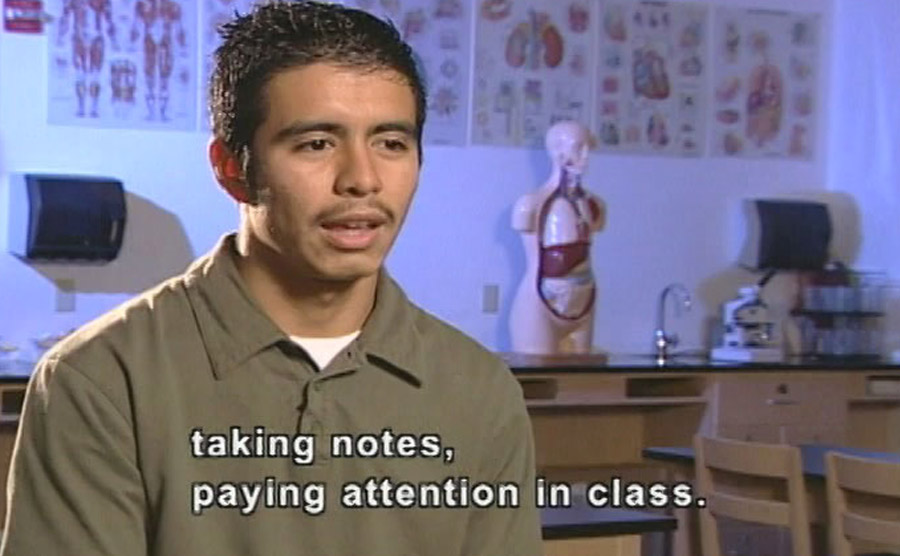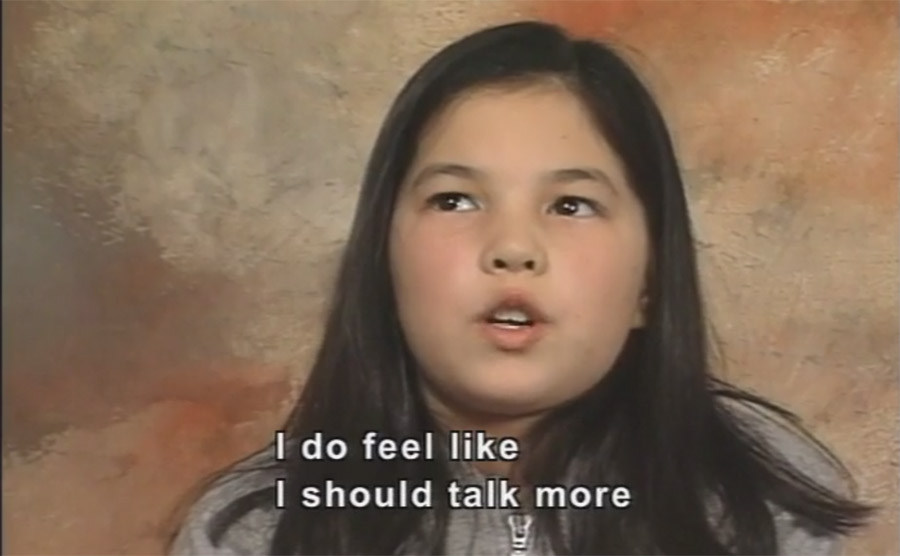<< Learning Center
Media Accessibility Information, Guidelines and Research
Plenty to Worry About: Children and Stress
By Jennifer DeGeorge
The Health Resource Network has designated April as Stress Awareness Month. During this 30-day period, health-care professionals and health-promotion experts across the country join forces to increase public awareness about both the causes and cures for our modern stress epidemic. These experts teach that stress has many causes and affects people of all ages, from all walks of life.

What are Causes and Types of Stress in Children?
Physical and chemical factors that can cause stress include trauma, infections, toxins, illnesses, and injuries of any sort. Emotional causes of stress and tension are numerous and varied, surprising adult providers and caregivers who often tend to view the world of chldren as happy and carefree. After all, kids don't have jobs to keep or bills to pay, so what could they possibly have to worry about? Plenty!

Here are a few examples of concerns among children:
- Feeling rushed
- Taking tests, doing homework, writing papers, not getting good enough grades, changing schools
- Separation from family
- Being left out of a group, not getting along well with teachers, not being good enough at sports
- Health problems or becoming sick
- Personal harm from other children, family, or others
In order to help children deal with their concerns, caregivers and teachers must be able to identify the signs of stress. Some indicators include school avoidance, sleep disturbance, increase or decrease in energy level, and withdrawal from family and friends.
Where Can You Go for Assistance?
One place is the Described and Captioned Media Program! DCMP has abundant and appropriate resources for any child, elementary through high school
For your child's success in study skills and your learning how to teach those skills, try viewing Developing Good Study Skills (Part 1 and Part 1) and Study Smarts: Skills & Strategies for Top Grades.
To combat those stress-causing bullies, try: Ghosts in the Hall, which explores the all-too-common problem of bullying and offers suggestions on how to handle it and work toward a possible solution.
Also, the Against Bullying Series (Parts 1-2) explores understanding bullying, what it means to be a bystander, and better ways to communicate; and Every Young Person Has Challenges, in which 15 young people speak candidly about personal challenges they face, including grades, bullying, and racism.
When you have identified signs of stress, DCMP media can also provide guidance on stress management as follows:

- To encourage physical exercise, good nutrition, staying active, and rest, view Exercise: It's Good for You. A healthy body depends on a whole family changing their lifestyle.
- To teach your child to problem-solve, you can view Taking Control: Strategies for Coping With Stress. Issues covered include ways to manage stress, minimize distress, and prepare to survive anticipated stressful situations.
- To help foster a sense of positive self-esteem and personal responsibility, try Families Growing Together: Doing Something Right, which discusses how parents' positive words and attention help build self-esteem and self-worth in their children.
- To demonstrate how one can develop the ability to "bounce back" after something negative happens, view Building Resilience, which discusses the importance for young people to build resilience so that they can recover from stress and trauma.
Anything Else You Should Know?
DCMP also has a clearinghouse of information that contains articles like Hear Me, which examines the reasons why stress and abuse can be underreported; and Muffled Journey, which is the author's account of her life as a person who is hard of hearing and the stressors (and joy) therein.
Also note our A Stressless You Learning Center resource for additional DCMP media that can help you provide children with the needed tools to reduce and manage their stress. Join the DCMP's challenge to foster stress-less children!
Tags:
Please take a moment to rate this Learning Center resource by answering three short questions.
